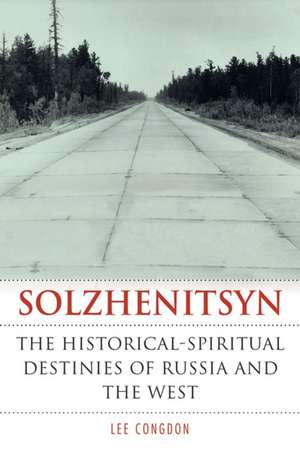Solzhenitsyn – The Historical–Spiritual Destinies of Russia and the West
Autor Lee Congdonen Limba Engleză Paperback – 14 aug 2021
Preț: 202.64 lei
Nou
Puncte Express: 304
Preț estimativ în valută:
38.78€ • 40.44$ • 32.23£
38.78€ • 40.44$ • 32.23£
Carte tipărită la comandă
Livrare economică 20 martie-03 aprilie
Preluare comenzi: 021 569.72.76
Specificații
ISBN-13: 9781501755231
ISBN-10: 1501755234
Pagini: 174
Dimensiuni: 149 x 227 x 13 mm
Greutate: 0.26 kg
Editura: MB – Cornell University Press
ISBN-10: 1501755234
Pagini: 174
Dimensiuni: 149 x 227 x 13 mm
Greutate: 0.26 kg
Editura: MB – Cornell University Press
